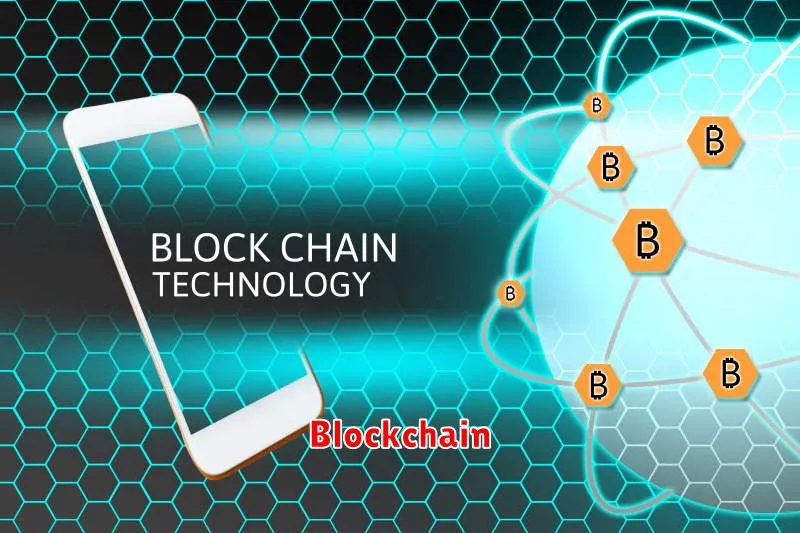The realm of consumer electronics is undergoing a profound transformation, driven by the emergence of blockchain technology. This innovative technology, known for its decentralized and transparent nature, is poised to revolutionize the way we interact with our devices, access entertainment, and manage our digital lives. From secure data storage and enhanced privacy to streamlined supply chains and new forms of digital ownership, blockchain promises to reshape the consumer electronics landscape in unprecedented ways.
As we delve into the impact of blockchain on consumer electronics, we will explore its transformative potential across diverse applications. From smart contracts that automate device interactions to decentralized marketplaces that empower consumers, this article will shed light on how blockchain is poised to redefine the future of our electronic gadgets and the experiences they deliver.
How Blockchain Enhances Security in IoT Devices

The Internet of Things (IoT) has revolutionized our daily lives by connecting everyday objects to the internet, creating a vast network of interconnected devices. However, this interconnectedness also presents significant security challenges. IoT devices are often vulnerable to attacks due to their limited processing power, lack of robust security measures, and susceptibility to data breaches. Blockchain technology offers a potential solution to these vulnerabilities, providing enhanced security for IoT devices.
One way blockchain enhances IoT security is through its decentralized nature. Unlike traditional systems that rely on central servers, blockchain data is distributed across multiple nodes in a network. This eliminates the single point of failure vulnerability associated with central servers, making it more difficult for attackers to compromise the entire system.
Blockchain also introduces cryptographic security to IoT devices. Each transaction on the blockchain is secured using cryptographic algorithms, making it extremely difficult for unauthorized parties to tamper with or alter data. This ensures the authenticity and integrity of data transmitted between IoT devices.
Furthermore, blockchain enables secure data sharing. IoT devices can securely share data on the blockchain, allowing for collaborative applications and increased transparency. This promotes trust and accountability within the IoT ecosystem.
In conclusion, blockchain technology offers a powerful solution for enhancing the security of IoT devices. Its decentralized architecture, cryptographic security, and secure data sharing capabilities create a more resilient and trustworthy environment for connected devices. As the IoT continues to grow, blockchain will play a critical role in protecting the privacy and security of our connected world.
The Future of Blockchain in Consumer Electronics
Blockchain technology is poised to revolutionize the consumer electronics industry, offering a range of benefits that could transform how we interact with our devices and data. From enhanced security and transparency to streamlined supply chains and new business models, blockchain has the potential to reshape the entire consumer electronics landscape.
One of the most significant impacts of blockchain will be in the realm of device security. By leveraging blockchain’s immutable and decentralized nature, manufacturers can create secure and tamper-proof systems for storing and managing device data. This will help to mitigate the threat of hacking and data breaches, providing consumers with greater peace of mind.
Moreover, blockchain can foster a more transparent and trustworthy ecosystem for consumer electronics. By enabling the tracking of devices and components throughout their lifecycle, blockchain can help combat counterfeiting and ensure the authenticity of products. This transparency will empower consumers to make informed purchasing decisions and hold manufacturers accountable for the quality and origin of their products.
The impact of blockchain extends beyond device security and transparency. It can also optimize supply chain management by providing a secure and efficient platform for tracking goods and managing inventory. This can lead to faster delivery times, reduced costs, and improved overall supply chain efficiency.
Furthermore, blockchain could pave the way for new and innovative business models in the consumer electronics industry. Decentralized platforms built on blockchain can empower consumers to participate in a more collaborative and transparent economy. For example, consumers could directly interact with manufacturers through blockchain-based marketplaces, enabling peer-to-peer transactions and creating new opportunities for product development and distribution.
The future of blockchain in consumer electronics is filled with exciting possibilities. By leveraging the power of this disruptive technology, manufacturers, retailers, and consumers can work together to create a more secure, transparent, and efficient ecosystem for the industry. As blockchain technology continues to mature and evolve, its impact on the consumer electronics landscape will become increasingly profound.
Decentralized Networks and Their Role in Smart Devices

Decentralized networks, powered by blockchain technology, are revolutionizing the way smart devices interact and share data. Unlike traditional centralized systems, which rely on a single authority to control information, decentralized networks distribute data across a vast network of nodes, making them more secure, transparent, and resistant to censorship.
One key benefit of decentralized networks is their enhanced security. Data is not stored in a single location, making it harder for hackers to access and manipulate. This is particularly crucial for smart devices, which often handle sensitive personal information.
Furthermore, decentralized networks promote data ownership and control. Users can choose how their data is used and shared, eliminating the need to rely on third-party intermediaries. This empowers users and fosters trust in the ecosystem.
Challenges and Opportunities in Blockchain Adoption
The integration of blockchain technology in consumer electronics presents a plethora of opportunities and challenges. Security remains a paramount concern, as any vulnerabilities could compromise sensitive data and user privacy. Scalability is another critical obstacle, with current blockchain platforms struggling to handle the volume of transactions required for widespread adoption. Moreover, regulatory uncertainty poses significant challenges, hindering the development and deployment of blockchain applications.
Despite these hurdles, blockchain adoption in consumer electronics offers several potential benefits. Decentralization can empower users by giving them greater control over their data and devices. Transparency enhances trust and accountability, fostering a more secure and reliable ecosystem. Blockchain can also facilitate efficient and secure payment systems, streamlining transactions and reducing costs. Additionally, supply chain management can be revolutionized, ensuring product authenticity and traceability.
Moving forward, overcoming these challenges is essential for realizing the full potential of blockchain in consumer electronics. Collaboration between industry stakeholders, policymakers, and researchers is vital to address security vulnerabilities, enhance scalability, and develop robust regulatory frameworks. By working together, we can unlock the transformative power of blockchain and create a future where consumer electronics are more secure, transparent, and efficient.
Case Studies: Blockchain in Consumer Electronics
The consumer electronics industry is ripe for disruption, and blockchain technology is poised to play a significant role. Here are some prominent case studies demonstrating the impact of blockchain in this sector:
1. Provenance Tracking and Counterfeit Prevention
Companies like Veriship utilize blockchain to track the origin and journey of electronic components, ensuring authenticity and preventing counterfeits. This technology empowers consumers to verify the legitimacy of their purchases, fostering trust and transparency in the supply chain.
2. Smart Contracts for Device Management
Aion is developing a platform that leverages smart contracts to enable secure and decentralized device management. This allows consumers to control their device’s settings and data access, empowering them to manage their privacy and security.
3. Decentralized Data Storage and Sharing
Storj provides a secure and decentralized platform for storing and sharing electronic device data. This eliminates reliance on centralized cloud providers and empowers users to control their data ownership and privacy.
4. Rewarding User Participation
Samsung is exploring the use of blockchain technology to reward users for their participation in its ecosystem. This includes sharing data, providing feedback, or participating in beta testing programs.
These case studies showcase the potential of blockchain to revolutionize the consumer electronics industry by enhancing transparency, security, and user empowerment. As the technology matures, we can expect to see even more innovative applications that redefine the way we interact with our devices and the data they generate.
Blockchain-Powered Transactions in Smart Homes
The integration of blockchain technology into smart homes offers a revolutionary approach to managing and securing transactions within the connected environment. This technology empowers secure, transparent, and decentralized control over various aspects of a smart home, including energy consumption, appliance usage, and data sharing.
One of the most impactful applications of blockchain in smart homes is facilitating secure and transparent energy transactions. By leveraging the decentralized nature of blockchain, homeowners can engage in peer-to-peer energy trading, selling excess solar power generated by their home to neighbors or the grid. This eliminates the need for intermediaries, reducing costs and empowering energy independence.
Furthermore, blockchain can enhance data security within a smart home. By storing data on a decentralized ledger, blockchain eliminates single points of failure and ensures data integrity. This protects sensitive information like appliance usage patterns and personal preferences from unauthorized access and manipulation.
Beyond energy management and data security, blockchain can also optimize smart home automation. By enabling secure and verifiable transactions between smart devices, blockchain ensures smooth and reliable communication and control. This eliminates potential vulnerabilities and fosters a more robust and responsive smart home ecosystem.
In conclusion, blockchain technology presents a transformative opportunity to revolutionize smart home experiences. By enabling secure, transparent, and decentralized transactions, blockchain empowers homeowners with greater control over their energy consumption, data privacy, and home automation systems. This ultimately enhances the overall efficiency, security, and convenience of living in a connected home.

